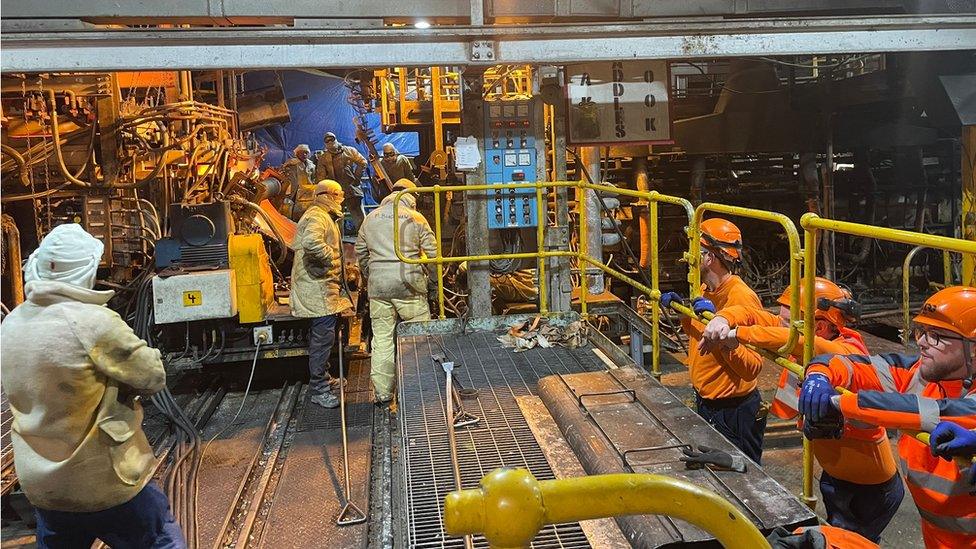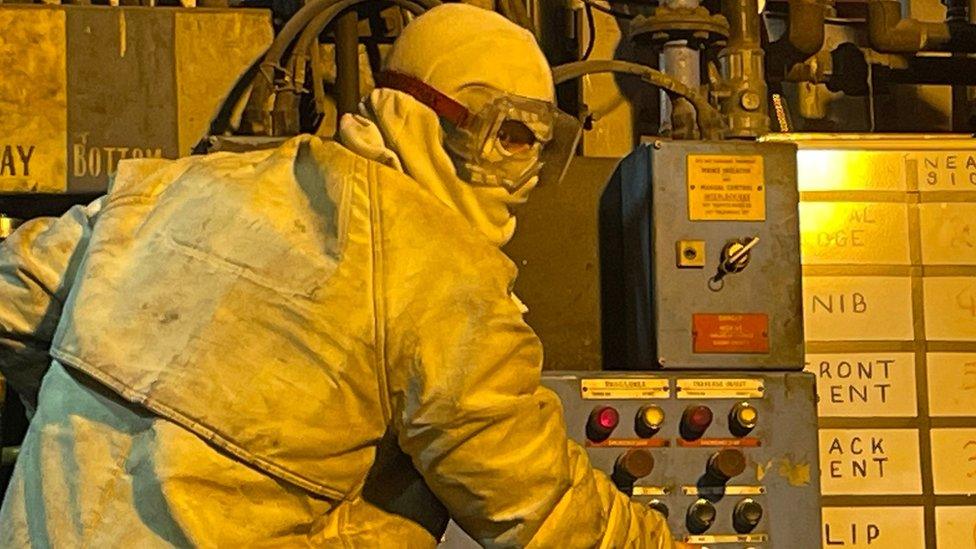Historic St Helens glassworks to close after 200 years
- Published

The Watson Street works has been in production for two centuries
An historic Merseyside glassworks will be shutting down for the final time after nearly 200 years of production.
The site in St Helens is where glassmaker Pilkington UK invented the modern float glass process, used globally today.
Production at Watson Street Works is moving to Pilkington's neighbouring Greengate site.
It is estimated the government-backed project will save 15,000 tonnes of CO2 each year.
The site's Victorian industrial architecture has also been used as the backdrop for a number of major Hollywood and TV productions, with stars such as Samuel L. Jackson, Olivia Coleman and Cillian Murphy filming there for Marvel's Secret Invasion and BBC's Peaky Blinders.
The move to the Greengate site is part of a project which Pilkington says is one the single biggest investment it has made in the UK in decades. No job losses are expected.

A worker, pictured at the historic production site
Managing director Neil Syder said: "Today we're shutting down the production of the textured glass, the patterned glass that we produce here, in readiness to move the production across to Greengate works across the road."
He said watching the last set of glass come off the line was "really quite emotional".
"We've been making glass here and actually developing and innovating glass here for 200 years," he went on.
"Most of the modern glass you see in the world has come from technology that has been developed here in Watson Street.
"It's also an important step. I see what we are doing here today as confirming that innovation. Moving it to Greengate where we can continue to improve and continue to make the savings in carbon that the country needs."
The project will receive a £3.7m grant through the government's Industrial Energy Transformation Fund, which helps cover the costs of industrial energy efficiency and decarbonisation projects in the UK.
Operations manager Phil Madin has worked for the company for 36 years after starting as a 16-year-old apprentice.
He said: "It's been a long past seven years where we've been drawing to a conclusion over the last few months.
"It does bring a tear to the eye on one hand, but on the other it's a view to take the manufacture of glass forward."
Mr Madin said the move secures the future of Pilkington and St Helens.
"The important factors are that carbon reduction will be achieved and also employment of local people will be retained", he added.

Why not follow BBC North West on Facebook, external, X, external and Instagram, external? You can also send story ideas to northwest.newsonline@bbc.co.uk, external
Related topics
- Published30 October 2023
